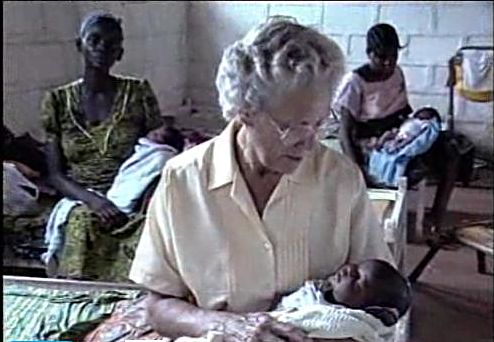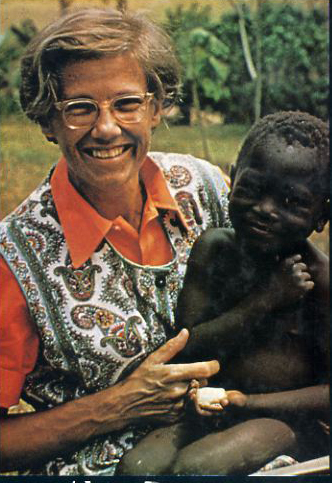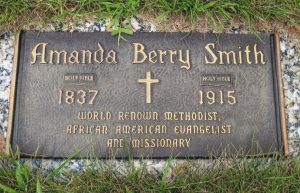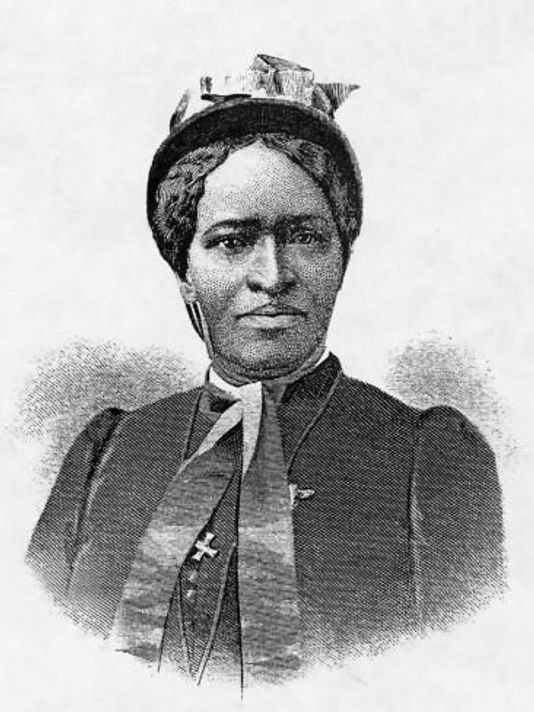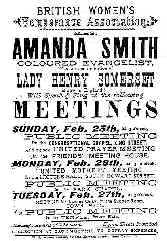A Note About Jesus and Women
Women were not treated with respect in Jesus’ day. The rabbis had a saying, “Talk not much with womankind.” And this statement was found in the Talmud, “It was taught: Do not speak excessively with a woman lest this ultimately lead you to adultery.” In other words, men can’t speak straight across to women as equal human beings.
Jesus broke the mold. By interacting with women the way He did, He was directly violating the rules of the Pharisees. In contrast to this the Gospels, especially Luke’s Gospel, show Jesus lifting women to a place of freedom and respect that they had not known before in Judaism.
Christianity is different from all of the rest of the world’s religions.
While the leaders in Israel would cater to the rich, Jesus would go to the poor. While the Pharisees would only speak with other men, Jesus would speak with women. The leaders would emphasize the externals of religion; Jesus would emphasize the heart condition.
I’ve never heard a sermon on the interaction of Jesus with women. I’ve heard only a handful of sermons on any woman period. This really concerns me. At the very least it leaves the impression that women are not important. At the worst, it gives the impression that we have not learned anything from the Lord Jesus about how to treat women.
Jesus showed that He valued women when He spoke to them. This must have been shocking to those around Him. We know from John’s Gospel, for example, that even the disciples were “surprised to find him talking with a woman,” (John 4:27).
Jesus knew His Scriptures better than anybody. Women were created in the image of God at the same time as men (Genesis 1:27). Putting aside all of the issues in today’s “gender debate”, let us focus on how Jesus treated women. What can we learn from that?
Let’s begin with the story of the first woman in Jesus’s life – His mother Mary.
Mary, the mother of Jesus
Mary was truly remarkable. Sovereignly chosen by God to bear the Christ child, from among all of the women who had ever been born, she was the one who brought our Redeemer, the Messiah into the world. Mary was an ordinary human being, but she had great faith, courage, and piety. She proved her faith with obedience, her courage with humility, and her piety with thoughtfulness, prayer, and submission.
We learn the most about Mary in Luke’s Gospel. Doctor Luke took it upon himself to interview many disciples of Jesus in order to write his story. Luke wanted everyone to know that he was giving the exact truth of the events surrounding Jesus’ life, and so he wrote the things “just as they were handed down to us by those who from the first were eyewitnesses and servants of the word,” (Luke 1:2). The main eyewitness was of course Mary who was there from Christ’s conception until His death.
It should not surprise us then that we have Mary’s words recorded for us in Luke’s Gospel or that there are so many details about Mary’s interaction with Jesus. Mary was still alive and probably shared all of the stories with Luke personally. Even after the resurrection Mary continued to be a faithful witness. That explains how we know the very conversations that Mary had with the angel, Elizabeth, Jesus, and others.
We don’t know very much about Mary’s upbringing. We know that she had a sister, Salome, who was the mother of Jesus’ disciples, James and John. Salome was also a devoted follower of Jesus and was there at the cross with Mary when He was crucified. Of course, we also know that she was related to Elizabeth, mother of John the Baptist. Besides this, we only know that she grew up in Nazareth as the daughter of a poor but hardworking family.
From her song, the Magnificat, we can see that Mary grew up in a godly family. Perhaps listening to and reciting or singing the Scriptures was a big part of her every day life. Girls did not go to the synagogue as boys did, but that doesn’t mean that Mary, who loved God with all of her heart would not have loved to hear the stories of God’s mighty works. When the angel came to see Mary, she knew Who God was and what He had promised, and was ready to obey God.
In the Scriptures, we first meet this humble peasant girl when an angel of the Lord goes to Mary’s home and announces God’s plan for Mary to bear Jesus. At the time of the Annunciation, Mary was probably a teenager. Back in that day, girls were often betrothed at age thirteen. Her marriage was probably arranged by the parents of Joseph, her prospective bridegroom. Joseph was a carpenter. He was also a godly and righteous man.
In those days a betrothal was as legally binding as a marriage. In fact, if a betrothal was broken by one of the parties, through infidelity for instance, there had to be a divorce proceeding. There were two ways to get the divorce, a public trial, which would have been very humiliating for Mary, or a quiet proceeding. In the quiet proceeding, the wronged party could get two witnesses to sign a release with him and send the other party away. In Joseph’s case, he thought that he would just send Mary somewhere to have her child secretly and avoid disgrace. We know that an angel appeared to Joseph in a dream, and then Joseph knew that everything was all right. This was God’s plan. And so he willingly took his part as Mary’s husband and earthly father of Jesus.
Mary must have known what could happen to her when Joseph found out that she was pregnant. She knew that the horror of public scandal might await her. But she trusted God to take care of her. She surrendered herself unconditionally when she said, “I am the Lord’s servant. May your word to me be fulfilled.” (Luke 1:38) Mary did not doubt or question God. She just immediately, humbly, and joyfully submitted to God’s will.
Some people think that Mary did not believe the angel when she was questioning, “How will this be since I am a virgin?” (Luke 1:34) Luke had already told the story of Zacharias who did not believe the angel. When the angel told Zacharias that he and his barren wife would have a child, it was just too hard for him to believe. (Luke 1:5-25)
But this was not the motive behind Mary’s question. Mary was not questioning the angel because she did not believe God. She merely wanted to know how a virgin could get pregnant. Though the Bible doesn’t say, I have to wonder if the humble maiden also wondered why she was the one who was chosen. After all, the Israelites had been waiting for their Savior for hundreds of years. Perhaps Mary thought that she wasn’t good enough to be the mother of the Messiah, nevertheless she believed God.
So the angel explained to her that God would be the Father of Jesus. The Holy Spirit would cause the conception of Jesus in Mary’s womb. Indeed, Jesus would be the King who would sit on David’s throne. Mary’s response was of total submission to God, ” I am the Lord’s servant. May your word to me be fulfilled.” (Luke 1:38)
And so, Mary’s faith is an example to us. She proved her faith by responding with humble obedience. She went to visit her cousin Elizabeth who confirmed this, “and blessed is she who believed that there would be a fulfillment of what had been spoken to her by the Lord.” (Luke 2:45) Mary knew that the child she carried was the Savior that everyone had been waiting for. Jesus is the promised king, the promised son of David.
Mary, the first New Testament Theologian –
Many scholars have portrayed Mary as an ignorant peasant girl with little understanding of the Scriptures. But Mary’s song of praise reveals that she had studied the Scriptures. Why is this important? Because Mary would be the teacher for the little boy Jesus. It was important that her home would be one of worship to God filled with knowledge of God’s Word, love, thankfulness and praise. All of these, the mother Mary was able to do.
Proof of this is in Mary’s song, one of the most beautiful songs ever recorded. It reminds us of the Psalms and many other songs in the Old Testament. Mary is the first theologian in the New Testament, blending dozens of Old Testament Scriptures into a few verses to praise, honor, and testify to God’s plan of redemption.
There are scores of Scriptures that are alluded to in Mary’s song. You will find that you have a miniature history lesson of the Old Testament as well as a picture of God’s faithfulness to His people all in Mary’s song.
Mary’s song follows the pattern of the other famous songs in the Old Testament. The songs follow a pattern of praise, adoration, ascribing magnificence to God, thankfulness for salvation, a history of how God has always saved His people, and a hope and belief in God’s promise for the future.
Let’s note how Mary’s song fills this pattern. (Luke 1:46-55) – (Note to teacher: just skim a few verses and encourage the group to take the handout home and study it on their own.)
Back to the lesson:
Mary was not just praising God for her own part in God’s plan. The meaning of her pregnancy was that the longed-for Messiah was finally coming to Israel. This was cause for everyone to rejoice. When she visited her relative, Elizabeth, this godly cousin also rejoiced that now the things that God had promised since the beginning, were finallybeing fulfilled. Christ was finally coming!! Mary was humble and amazed that God would do such remarkable things through her, a lowly and undeserving handmaid. But nevertheless she was thankful and so happy that she couldn’t help bursting into song!
Mary stayed with Elizabeth for about three months then returned home. When it was very nearly the time for Jesus to be born, Mary went with Joseph to Bethlehem. Women did not usually travel during the advanced stages of their pregnancies. Was she aware of the prophecy that Jesus would be born in Bethlehem? We don’t know. We do know that angels spoke to Joseph as well. Perhaps the angel directed Joseph to take Mary with him even though her presence was probably not needed at the registration. We know that whatever came her way, Mary responded in obedience and with great courage.
Even upon arriving in Bethlehem Mary could have wondered if she did the right thing when she and Joseph found that there was no room for them at the inn. Still she humbly obeyed. It would not have been easy to give birth in a stable. Mary trusted God. Though barely out of childbed, she graciously entertained visitors – rugged shepherds who came by to rejoice in the birth of Jesus. All of these things she pondered in her heart.
When Jesus was eight days old, Mary and Joseph took Him to Jerusalem to be circumcised. Simeon gave praise to God for allowing him to see the Savior before he died. He also prophesied that Jesus would be a “light of revelation to the Gentiles.”
Simeon also gently told Mary that, “this child is destined to cause the falling and rising of many in Israel, and to be a sign that will be spoken against, so that the thoughts of many hearts will be revealed. And a sword will pierce your own soul too.” (Luke 2:34, 35) Mary was amazed at these words, but continued to ponder all of these things in her heart – something Luke would mention many times in his Gospel. Anna, a prophetess in the temple also praised God for the Savior. Mary was truly a thoughtful, pious woman.
About two months after Jesus’ birth, Mary went to the temple for her purification as also required. Mary is a faithful example of an obedient follower of God.A short time later, when Herod sought to kill the baby Jesus, Mary courageously fled to Egypt with Joseph though Egypt was a land traditionally an enemy of the Israelites.
Then returning home to Nazareth she and Joseph raised Jesus as a normal boy even though Mary knew that He was the Son of God.
Though Mary’s firstborn Son was special she led a typical life as a mother in a small village in Galilee. There is no evidence that she treated Jesus any differently than her other children. Mary would have fixed meals, washed robes, and schooled Jesus as a small boy. The Bible doesn’t say that Jesus did anything other than what ordinary human boys do when He was young.
There is only one incident in Jesus’ childhood mentioned in the Gospels. (Luke 2:41-51) On this occasion Jesus astounded the leaders in the temple with His knowledge of the Scriptures and His wisdom in understanding and applying them to life. Of course Jesus is also God, but on this occasion He showed His attention to learning and His devotion to studying about His Father as a human child. We mustn’t forget that in Jesus’ day a twelve-year old had already had many years of training in the Torah. Mary would have helped Jesus with His Scripture memory and study even as Christian parents do today.
Jesus returned to Nazareth after this incident with His parents and was subject to them in all things. This means He was not only a good student, but He was a good Son. All during the years that Mary raised Jesus she would have been wondering just what it would mean that Jesus was the Messiah. What was He going to do?
So Mary enjoyed a normal family life with her children raising them the way all good mothers did in those times. At some point Joseph died. Mary did not remarry when Joseph died, but depended on her sons, especially her firstborn, Jesus, to help care for the family.
Mary would then be raising her children as a widow. Being the oldest Son, Jesus would have taken over the position of head of the family. He would have assumed the duty of seeing to it that His mother was protected as well as His sisters and brothers. These were all the normal duties of any son in those times. Jesus continued to care for her until the day that He began His public ministry.
Jesus made His identity as God’s Son public at His baptism. Was Mary present at Jesus’ baptism? The Scriptures do not say, but this was an important event in the life of a Jew; perhaps she was present. If Mary was there, then she saw the Holy Spirit in the form of a dove and heard God’s voice from heaven. These things would have reminded her of that time over 26 years ago when the angel appeared to her and announced who her Son would be. She would have recalled Simeon’s words to her and also Anna’s prophecy. The things that she had been pondering in her heart would begin to make sense. As would be true for all of Jesus’ disciples however, it would take time for the mission of the Messiah to become clear.
On the way back home to Nazareth, Jesus, Mary and some of His brothers or friends stopped in Cana for a wedding. At this wedding in Cana we see the first opportunity to witness the change in the way Jesus related to His mother.
The story is well known. At the feast the wine ran out. This was a major embarrassment not only for the bridegroom but also for the steward who was in charge of the wedding feast.
Most readers comment on Jesus’ response to His mother, but I would like to back up first for a minute and ask, “Why did Mary even ask Him?” Did she realize that He could work miracles? He hadn’t done a miracle yet. And what kind of miracle was she asking for? Most of Jesus’ miracles would be about doing really important things like healing people or even raising people from the dead. Why was Mary asking Jesus to help with a less than a life or health-threatening situation? Why did Jesus go ahead and do this miracle as the first one of His public ministry?
In light of this, Jesus’ answer to Mary makes more sense. It was very kind and considerate. His response has always seemed harsh to people, “Woman, (note: not “mother”) why do you involve me? My hour has not yet come.” (John 2:4) At first it seems like Jesus is giving His mother the brush off. We should remember two things.
First, Mary is now in a slightly different relationship with Jesus. Just like any young man who leaves home, Jesus holds His mother in great respect but must make His own decisions.
Secondly, Jesus knows what His life is to be. Remember, at the temple when He was twelve years old He told His parents that He must be about His Father’s business. What did Jesus think of making His first public miracle one of seemingly small importance? He could have told His mother that it was just too bad about the wine but His Father doesn’t want Him doing such trifling works.
Instead somehow Jesus indicates to Mary that He will help. Mary tells the servants to do what Jesus instructs them. In this way, Mary shows that she understands that her Son now has the authority. She is telling Him, “Yes, You are now to go out on Your Father’s business. I will return to Nazareth and You will go and do the work that Your Father has given You.”
As always, Mary had pondered all of the things that were told to her about her Son. Now she is beginning to see the reality of Jesus’ deity. Now she is beginning to understand what the predictions about her Son were all about. There would still be a long way to go as Jesus’ purpose for coming to earth would begin to unfold.
As Jesus’ ministry progressed people began to oppose Him more and more. Once after Jesus cast a demon out of a man the Pharisees accused Him, “It is only by Beelzebul, the prince of demons, that this fellow drives out demons.” (Matthew 12:24). These Israelites thought that Jesus was evil or insane. The rulers began to plot Jesus’ death.
It was right at this time that Mary and some of Jesus’ brothers and sisters came to see Him. Mary must have been wondering how things were going for Jesus. As a mother, was Mary worried about the anger and hostility that was clearly being shown by the Jewish leaders?
When someone told Jesus that His mother and brothers were waiting outside to see Him, He responded, “Who is my mother and who are my brothers?” (Matthew 12:48) Some have said that Jesus’ response was being disrespectful to His mother. No, Jesus was not slighting them but trying to make a point. He immediately answered His own question by saying, “Here are my mother and my brothers!” as He pointed to His disciples.
As Mary listened to Jesus explain that, “whoever does the will of my Father in heaven, is my brother and sister and mother.” (Matthew 12:50) she would have understood that Jesus was referring to more than just His physical family. Mary returned home with the assurance that she had a double relationship with Jesus, physical and spiritual. Jesus was her Son and her Savior.
We don’t hear about Mary again until we meet her standing at the cross when her beloved Son was put to death. There she was standing with other women, and John the disciple. What pain and anguish must have been in her heart as she beheld the cruel and painful death of her Son.
Here again, we see how considerate Jesus is of His mother. Though He has the weight of the sins of the world to bear, He takes time out to provide for Mary. He puts her in the care of John, the “disciple whom Jesus loved.” John took Mary into his own household. Jesus shows that though He said that His family now includes all believers, Mary still held a special place in His heart. Though Jesus’ time on earth was growing short, He spent some of it doing His last duty as a human son by thoughtfully caring for His mother.
Mary returned home with John and waited for events to unfold. Was she as surprised as all of the other disciples when on the first day of the week Mary Magdalene came and told Peter and the others that the tomb was empty? It is very likely that no one understood the full extent of Jesus’ purpose in coming to earth until His resurrection. But what joy must have filled her heart when she heard the good news!
This is not the end of Mary’s story. We know that she was waiting in an upper room in Jerusalem along with the eleven apostles and over 100 other disciples after Jesus ascended into heaven. (Acts 1:14) The believers would be filled with the Holy Spirit on the day of Pentecost. They would then all go out to proclaim the Gospel of the good news that Jesus lived, died, and rose again so that people could receive forgiveness for their sins and be at peace with God.
Mary would surely have been a willing and dedicated follower of Christ her Son proclaiming the good news to everyone. We know that she lived for at least a few more years because of the details of her life in Luke’s Gospel. Only Mary herself could have recounted such intimate details to Luke.
Application
Mary’s relationship with Jesus was very special. She was a model of faith, hope, love, courage, humility, and obedience. What a privilege for her to be the mother of Jesus, but what a privilege for us as Christ’s mothers and brothers and sisters to follow Him!
Discussion Questions
1. Mary was probably helped with memorizing Scripture by singing the words. What are some of your favorite songs that teach the Word of God?
2. Mary showed her faith in many ways. She put what God wanted above her own reputation. What are the difficult areas in our lives where we may be tempted to care more about what other people think?
3. Mary was a teenager when she was called by God to be the mother of the Messiah. Mary matured in her walk with Christ. Give some of the examples from her story that showed how she came to understand the full meaning behind the birth of her Son.
4. There will only be one Mary – one mother of Jesus – but how can we demonstrate our faithfulness and love for the Savior following her example? How will we find blessedness in our lives?
5. What are the ways that Jesus shows us how to live our lives from youth to old age?
Handout for Lesson 7 –
Women of God – Mary
Do not be afraid, Mary, for you have found favor with God. And behold, you will conceive in your womb and bear a son, and you shall call his name Jesus. He will be great and will be called the Son of the Most High. And the Lord God will give to him the throne of his father David, and he will reign over the house of Jacob; forever, and of his kingdom there will be no end. –Luke 1: 30-33
Notes:
Mary’s Early Life
Matthew 1,2; Luke 1,2
The Magnificat
Luke 1:46-55
Compare to:
Song of Moses (Exodus 15:1-18); Song of Miriam (Exodus 15:20, 21); Song of Deborah (Judges 5:1-31); Song of Hannah (I Samuel 2:1-10).
Mary’s Relationship with Jesus
Mary’s Later Life
Discussion Questions:
1. Mary was probably helped with memorizing Scripture by singing the words. What are some of your favorite songs that teach the Word of God?
2. Mary showed her faith in many ways. She put what God wanted above her own reputation. What are the difficult areas in our lives where we may be tempted to care more about what other people think?
3. Mary was a teenager when she was called by God to be the mother of the Messiah. Mary matured in her walk with Christ. Give some of the examples from her story that showed how she came to understand the full meaning behind the birth of her Son.
4. There will only be one Mary – one mother of Jesus – but how can we demonstrate our faithfulness and love for the Savior following her example? How will we find blessedness in our lives?
5. What are the ways that Jesus shows us how to live our lives from youth to old age?
Scriptures for next week: Mary of Magdala – Scriptures – Matthew 27:56, 61; 28:1-11; Mark 15:40, 47; 16:1,9; Luke 8:2, 3; 24:1-12; John 19:25; 20:1,2, 11-18.
Bonus Handout – The Magnificat
My soul magnifies the Lord,
Hannah – “My heart exults in the Lord.” (I Samuel 2:1)
Isaiah – “I will rejoice greatly in the Lord; My soul will exult in my God” (Isaiah 61:10)
Moses – “I will sing to the Lord, for He is highly exalted” (Exodus 15:1).
Miriam – “Sing to the Lord, for He is highly exalted” (Exodus 15:21)
And my spirit has rejoiced in God my Savior.
“My heart shall rejoice in Thy salvation” (Psalm 9:14; 13:5; 35:9; 48:11; 68:3; 97:1; 149:2)
For He has regarded the lowly state of His maidservant;
Hannah –
“For though the Lord is exalted, Yet He regards the Lowly” (Psalm 138:6)
“For thus says the high and exalted One… I dwell on a high and holy place, and also with the contrite and lowly of spirit.” (Isaiah 57:15)
For behold, henceforth all generations will call me blessed.
“How blessed is the man who has made the Lord his trust” (Psalm 40:4)
“How blessed are all those who long for Him.” (Isaiah 30:18)
“And she (Elizabeth) cried out with a loud voice, and said, ‘Blessed among women are you, and blessed is the fruit of your womb. … And blessed is she who believed that there would be a fulfillment of what had been spoken to her by the Lord.’” (Luke 1:42, 45)
Why is Mary going to be called “Blessed”? Not because she is so wonderful but because of God’s goodness.
For He who is mighty has done great things for me,
“Who can speak of the mighty deeds of the Lord, or can show forth all His praise?” (Psalm 106:2)
“The Lord has done great things for us; We are glad.” (Psalm 126:2)
“Do not fear, O land, rejoice and be glad, for the Lord has done great things.” (Joel 2:21)
And holy is His name.
“And give thanks to His holy name.” (Psalm 97:12; 105:3)
“Holy and awesome is His name.” (Psalm 111:9)“Our Redeemer, the Lord of hosts is His name, the Holy One of Israel.” (Isaiah 47:4)
And His mercy is on those who fear Him
“’I will surely have mercy on him, declares the Lord.’” (Jeremiah 31:20)
From generation to generation.
“Thou, O Lord, wilt keep them; Thou wilt preserve him from this generation forever.” (Psalm 12:7)
“The counsel of the Lord stands forever; The plans of His heart from generation to generation. …. I will cause Thy name to be remembered in all generations; Therefor the people will give Thee thanks forever and ever.” (Psalm 33:11; 45:17)
“Thou, O Lord, dost rule forever; Thy throne is from generation to generation.” (Lamentations 5:19)
He has shown strength with His arm;
“Splendor and majesty are before Him; Strength and joy are in His place.” (I Chronicles 16:27).
“I love Thee, O Lord, my strength.” (Psalm 18:1)
“With the saving strength of His right hand” (Psalm 20:6; 21:1; 28:7; 31:4; 37:39; etc…)
“For the Lord is my strength and song, And He has become my salvation.” (Isaiah 12:2).
He has scattered the proud in the imagination of their hearts.
Hannah – “Boast no more so very proudly; Do not let arrogance come out of your mouth.” (I Samuel 2:3)
“Look on everyone who is proud, and humble him; And tread down the wicked where they stand.” (Job 40:12)
“Rise up, O Judge of the earth; Render recompense to the proud.” (Psalm 94:2)
“Everyone who is proud in heart is an abomination to the Lord; Assuredly, he will not be unpunished.” (Proverbs 16:5)
“For the Lord of hosts will have a day of reckoning against everyone who is proud and lofty.” (Isaiah 2:12)
He has put down the mighty from their thrones,
“Now it came about at midnight that the Lord struck all the first-born in the land of Egypt, from the first-born of Pharaoh who sat on his Throne to the first born of the captive who was in the dungeon…” (Exodus 12:29)
“And I will overthrow the thrones of kingdoms and destroy the power of the kingdoms of the nations” (Haggai 2:22).
And exalted the lowly.
“He sets on high those who are lowly” (Job 5:11)
“Yet He regards the lowly” (Psalm 138:6)
“I dwell on a high and holy place and also with the contrite and lowly of spirit” (Isaiah 57:15)
He has filled the hungry with good things,
Hannah – But those who were hungry cease to hunger. … He raises the poor from the dust.” (I Samuel 2:5, 8)
“For He has satisfied the thirsty soul, and the hungry soul He has filled with what is good.” (Psalm 107:9)
“Who executes justice for the oppressed; Who gives food to the hungry.” (Psalm 146:7)
And the rich He has sent away empty.
Hannah – “Those who were full hire themselves out for bread” (I Samuel 2:5)
“Do not be afraid when a man becomes rich, …. For when he dies he will carry nothing away” (Psalm 49:16, 17).
“… his eyes were not satisfied with riches” (Ecclesiastes 4:8)
“But he who makes haste to be rich will not go unpunished.” (Proverbs 28:20)
He has helped His servant Israel,
Moses – “The Lord is a warrior; The Lord is His name. … Your right hand, O Lord, shatters the enemy.” (Exodus 15; 3)
Miriam – “The horse and his rider He has hurled into the sea.” (Exodus 15:21)
Moses – “So Israel dwells in security, …. Blessed are you, O Israel; who is like you, a people saved by the Lord?” (Deuteronomy 33:28, 29)
In remembrance of His mercy,
I am the Lord your God, etc……..
“The Lord is good to all, and His mercies are over all His works.” (Psalm 145:9)
Referring to Israel and God’s dealing with them:
“In His love and in His mercy, He redeemed them; and He lifted them and carried them all the days of old.” (Isaiah 63:9)
“’Therefore My heart yearns for him; I will surely have mercy on him, declares the Lord.’” (Jeremiah 31:20)
As He spoke to our fathers,
The Ten Commandments – “Then God spoke all these words saying” – (Exodus 20:1-17; Deuteronomy 5: 1-22)
“Hear now and I will speak” (Job 42:4)
“Hear, O My people, and I will speak.” (Psalm 50:7)
“God has spoken…” (Psalm 60:6; 62:11; 85:8; 99:7; 105:31; 108:7, etc…)
To Abraham and to his seed forever.
“The Lord said to Abram, ‘Go forth from your country … to the land which I will show you; …. I will make you a great nation … I will bless you …. And in you all the families of the earth will be blessed.’” (Genesis 12: 1-4)
